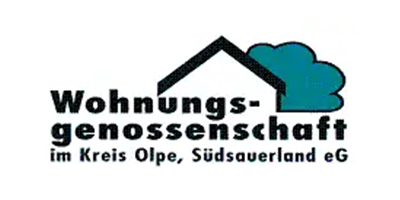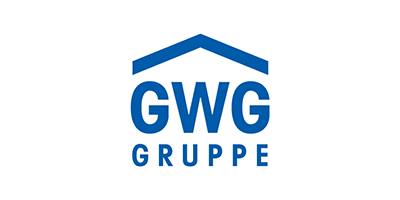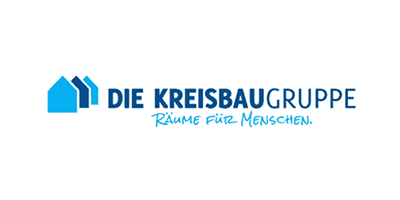Wohnungsgenossenschaft im Kreis Olpe, Südsauerland eG
A new direction in corporate performance management
Some time ago, the CEO of Wohnungsgenossenschaft im Kreis Olpe, Südsauerland eG, a registered housing association in the Olpe district of South Sauerland, Germany, decided on a change of direction in its corporate performance management. Until then, the Accounts department staff had concentrated simply on gathering the data and analysing the figures retrospectively. Flexible reporting and proactive planning were to be emphasised in future. This meant restructuring the internal processes while also bringing the software for operational management, Corporate Planner, back into use.
Getting going
The expectations of the CEO, Folker Naumann, were high. The corporate performance management know-how among the staff and the reporting and planning structures in the software were to be placed under scrutiny and rebuilt from scratch. The specifications ranged from a budget depicted for the housing association as a whole and for individual property units, through monthly plan/actual comparisons, to the monthly cost allocation sheet calculations. Management would be supplied with detailed income and expenditure plans, a budgeted balance sheet and a cash flow plan. The intention underlying these requirements was eventually to produce the Olpe housing association‘s annual financial statement more or less by mouse-click.
Secondly, in cooperation with the Rhineland Westphalia Housing and Real Estate Industry Association, a reliable work paper had to be created for the industry association‘s audit report, which is available for inspection on request. A preliminary step, after consulting with the assigned auditor, was getting the relevant values, key performance indicators and reports together.
After a careful analysis of all internal processes, the prerequisites were put in place on the technical side and in terms of content. Working together with CP Corporate Planning AG and with the help of the departments, Ramona Stutte, Personal Assistant to the CEO, gradually implemented all the requirements in the company and the Corporate Planner software. The specialist pre-system for real estate management, Wodis Sigma, was brought up to date as well, and data exchange between the two systems was configured.
Making analyses
Since the successful introduction of these measures, the corporate performance management staff have been able to respond quickly to all requests for reports, analyses and supplementary information. There are standard procedures and document templates for the routine monthly audits.
A precise definition was made beforehand of which data, key performance indicators and analyses are necessary, plus their deadlines and required formats. The monthly reports and analyses are compiled in just a fraction of the time taken previously.
Data evaluation has significantly improved overall, and accounting errors are detected much sooner. “Revenue and cost analyses, which can be broken down to individual buildings, are used for keeping an eye on the profitability of the housing stock. We make demand analyses which count housing applicants in each residential area so that we can begin advertising activities for individual regions in good time. The permanently accessible evaluations have made a huge contribution to the success of our enterprise. Despite declining population levels and the resulting fall in housing demand, we continue to have full occupancy even today. We were and still are in a position to react early and efficiently to the volatile housing market,“ Folker Naumann says.
Since the audit report is well prepared from the start, the auditor can turn his attention straight to questions of content rather than pouring over the details and, in his advisory capacity, offer the company constructive recommendations. The management is thus able to benefit from excellent support both from within the organisation and from outside.
Rethinking
However, the main objective of the project was to bring about a rethink in corporate performance management towards running the enterprise proactively. Instead of concerning themselves with troubleshooting and the time-intensive preparation of the cost allocation sheet, the CEO and the departments can now concentrate on planning and analyses and deliver key facts and figures for making decisions. “We use Corporate Planner to create income and expenditure analyses for each unit, along with the projected net income for the year. These figures go into producing multi-year budgets”, Folker Naumann confirms. The Olpe housing association is a forerunner in its sector. The objectives and instruments of proactive corporate performance management are not yet widely known in the housing industry. On the contrary, corporate performance management is understood as monitoring and evaluating data retrospectively. The Olpe housing association made the conscious decision to introduce a fresh approach to corporate management in the company. This also meant making the employees involved more aware of corporate performance management issues and having them undergo special training. For instance, training sessions in corporate performance management were held in order to increase staff awareness for forward-looking enterprise planning. Processes and structures had to be completely redefined and established. The success has confirmed that the hard work and the time and personnel expenditure have paid off. The financial statement for the year 2010 was produced much more quickly as a consequence of these measures.
About WG Olpe
Olpe is a town in Sauerland, North Rhein-Westphalia, with around 25,000 inhabitants, thriving industrial enterprises in the surrounding area, and green rolling hills. This housing association in the Olpe district is the largest active landlord in Olpe, and it receives about 90 per cent of all tenancy enquiries. The housing association was founded in 1902 and has approximately 1,900 residential units on its books, with floor space of between 35 and 125 square metres. Each building contains an average of six units. Membership of the association is compulsory for all tenants, as is the payment of an interest-bearing deposit. The housing stock dates mostly from the 1960s and 1970s. In the mid-1990s, new building ceased due to a housing demand assessment indicating no further need. Instead, Folker Naumann has now prioritised the ongoing upkeep of the buildings.

Solutions: Operational Controlling, Projectcontrolling, Reporting and Analysis
Industry: Real estate
Sites: Olpe (Germany)
Employees: 26
"We are in a position to react early and efficiently to the volatile housing market."
Stephan Kriegeskotte, CEO








